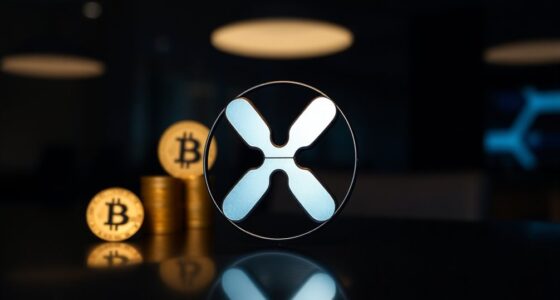You can't ignore the tension brewing between Elon Musk and Sam Altman. Musk's desire to acquire OpenAI is at odds with Altman's focus on current projects, especially the potential bid for Twitter. This rift raises critical questions about the future of both companies. As they navigate these conflicting priorities, the outcome could reshape the AI landscape. What will happen next, and how might it influence innovation and ethical practices in the industry?

In the rapidly evolving landscape of artificial intelligence, the spotlight often falls on the tense relationship between Tesla and OpenAI. You might recall that OpenAI was founded in 2015 with a noble mission: to ensure artificial general intelligence (AGI) benefits humanity. Initially, OpenAI received a whopping $1 billion in funding, far exceeding the $100 million they'd originally aimed for.
However, things turned complicated when Elon Musk attempted to merge Tesla with OpenAI in 2017, a proposal that didn't pan out. By 2018, Musk departed from OpenAI due to ideological differences and conflicts of interest, marking a significant shift in both organizations.
Fast forward to today, and OpenAI has transitioned to a hybrid model, combining non-profit and for-profit elements to secure the funding needed for its ambitious AI research. Microsoft's $1 billion investment in 2019 accelerated this shift, driving OpenAI's commercialization. CEO Sam Altman emphasizes that this move is crucial for technological advancements to achieve AGI. This transformation highlights the growing trend of industry adoption of emerging technologies like AI, which requires substantial investment.
Yet, Musk has openly criticized this pivot, arguing it strays from OpenAI's original mission. You can see the tension building as OpenAI requires billions annually to maintain its operations, pushing it further down the for-profit path.
Recently, Musk proposed acquiring OpenAI for $97.4 billion, hoping to steer it back to its foundational goals. However, Altman rejected this offer, deeming it an attempt to slow OpenAI's momentum. With Musk's AI startup, xAI, supporting this acquisition, investor backing from firms like Valor Equity Partners added fuel to the fire.
Yet, tensions escalated, leading Musk to engage in legal battles against OpenAI, accusing it of straying from its mission.
As you watch this public feud unfold, Musk's xAI has launched the Grok model, boasting capabilities that surpass OpenAI's GPT-3.5 in certain aspects. Meanwhile, OpenAI's Stargate project has come under scrutiny from Musk, who questions its legitimacy.
This conflict reflects broader debates about the future and ethical development of AI. In a lighthearted jab, Altman even joked about buying Twitter for $9.74 billion when responding to Musk's acquisition offer.
As both Musk and Altman navigate their contentious relationship, you're left wondering what the next steps will be for Tesla and OpenAI. Will they reconcile their differences, or will this public feud continue to shape the future of artificial intelligence development?










